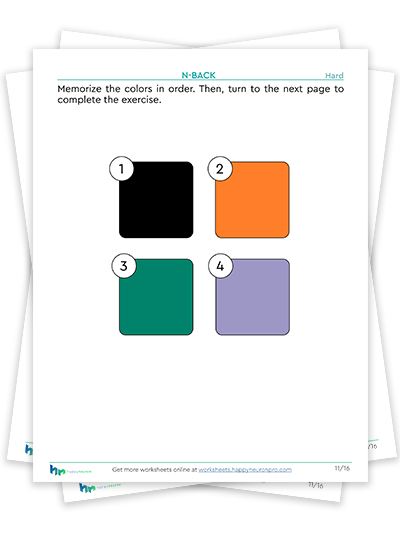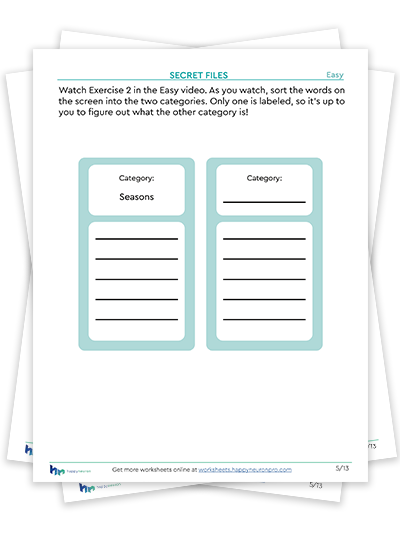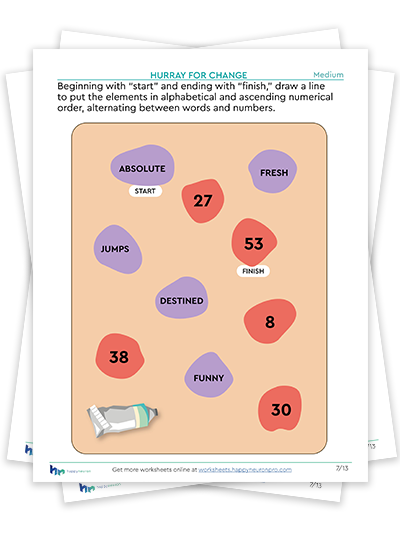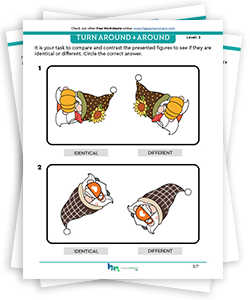NEW
OWNED
SALE
FREE
13046
839
mini-packet-116
Practice visual working memory and recalling sequences with this mini packet. Inspired by our digital exercise, N-Back, you’ll need to remember a specific sequence of colors in the correct order, recalling longer sequences as the levels get more difficult.
The cognitive abilities used in this exercise are important for skills such as remembering items on a to-do list or following a recipe.
Included inside: 12 pages of visual working memory worksheets and bridging questions.
If you like this mini packet, make sure to check out our other memory worksheets today! →








